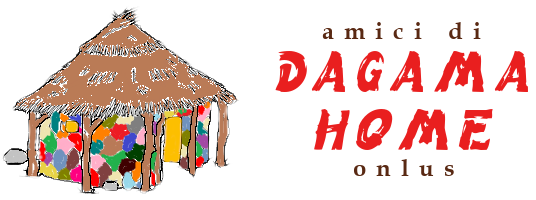Amici di DaGama Home ONLUS began its work in 2007 to provide humanitarian projects in Sub-Saharan Africa, mainly in Zambia.
DaGama ONLUS mainly supports DaGama Home School in Luanshya (a copper-belt town in the central Zambian diocese of Ndola) providing, through long distance adoption, the growth and instruction of about 350 children, many of whom are handicapped and impoverished children.
DaGama ONLUS furthermore support a lot of projects, in several small villages like Kapepa, Walale, Kampelembe as well as little towns as Chililabombwe and Zambia City, where it contributes to build several Schools and Nutritional Centers that assure a minimum of instruction and a meal per day at hundreds of children.
The motto of the DaGama School for the Physically Handicapped is “to provide care to the whole child” and that is exactly what they do. DaGama is Zambia’s first school for handicapped children. All the students live at the school, where they are fed three meals a day and a snack, so they can recover from malnutrition and begin to cope with their disabilities. Not only have the students proven their ability to perform – they are actually out-performing students in the public school system. Dagama’s high examination scores have earned it a ranking among the top schools in the whole region! Parents searching for a good school for their children are often surprised to learn that DaGama is a special-needs school, because the students always do so well on their exams.
Children born with disabilities need a lot of extra attention and support. But in the impoverished African nation of Zambia, children suffering from physical handicaps, such as cerebral palsy or muscular dystrophy, are more likely to get the least amount of attention and the least amount of support. That is because of the persistence of deeply-ingrained negative attitudes against the disabled, who are considered a burden to their family and not expected to be able to contribute to society. As a result, handicapped children are often isolated in their homes, kept out of school, prevented from participating in public life, and denied treatment that would enable them to be more functional.
If a handicapped child is also an orphan — a common circumstance in a country whose average life expectancy rate is only about 39 years — the situation is even worse.

